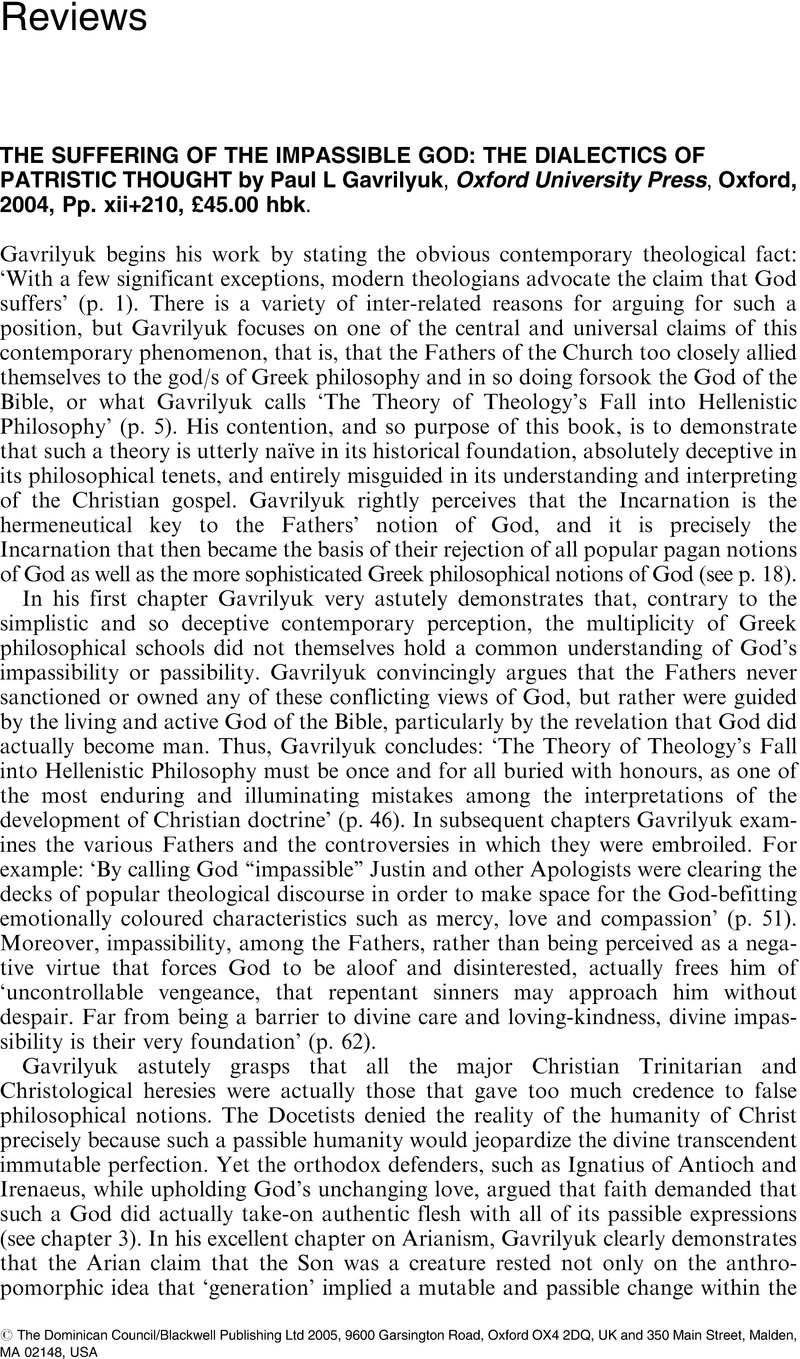No CrossRef data available.
Article contents
The Suffering of the Impassible God: The Dialectics of Patristic Thought by Paul L Gavrilyuk, Oxford University Press, Oxford, 2004, Pp. xii+210, £45.00 hbk.
Review products
The Suffering of the Impassible God: The Dialectics of Patristic Thought by Paul L Gavrilyuk, Oxford University Press, Oxford, 2004, Pp. xii+210, £45.00 hbk.
Published online by Cambridge University Press: 01 January 2024
Abstract
An abstract is not available for this content so a preview has been provided. Please use the Get access link above for information on how to access this content.

- Type
- Reviews
- Information
- Copyright
- Copyright © The Dominican Council/Blackwell Publishing Ltd 2005, 9600 Garsington Road, Oxford OX4 2DQ, UK and 350 Main Street, Malden, MA 02148, USA


